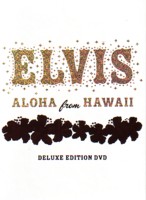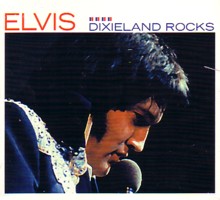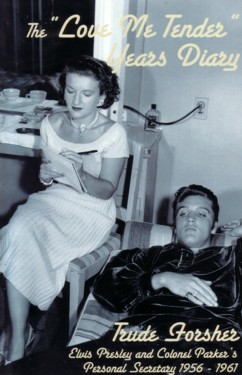 |
 |

Trude Forsher, James Forsher (editor), Book Surge, USA, 2006. Softcover, Illustrated, 177 pages, ISBN: 1419634704
Another time we learn how Elvis won eight teddy bears successfully knocking down milk bottles with baseballs at Long Beach Pier. Other chapters detail the recording of Love Me Tender, the incredible event known as the Tupelo Homecoming, Ike and Elvis, and "Elvismania". We also discover more about the "Snowman", the famous fisticuffs involving Elvis at a Memphis gas station, the "mousetrap", the Colonel's right and wrong way to do something The final chapter deals with the death of Gladys Presley. It is a strong narrative, not for its coverage of Elvis' reaction to his mother's death, but for the author's ability to both understand his psyche at the time and offer a balanced view on the closeness of mother and son. Some reviewers have criticised this release for its lack of photos, but to do so is to completely miss what this book is about! It is part of an historic record of essentially the inside drivers of "Elvismania" at its peak. While certainly covered, the book is not about the outside manifestation of Elvis' success. And as there are already thousands of photos of Elvis published from this period, more, while welcome, are not paramount to furthering the Elvis story. What is presented in The "Love Me Tender" Years Diary is very different from the normal treatment of Elvis in the late 1950s. It really is an important collage of personal record and archival material which gels wonderfully to further illuminate our knowledge and understanding of what happened around Elvis in the 1950s. The historic documents, when viewed together with Ms Forsher's first hand account of the growth of Elvis Presley the music and Hollywood superstar, make The "Love Me Tender" Years Diary an invaluable release. Verdict: The "Love Me Tender Years" Diary will be welcomed by Elvis scholars wanting a greater glimpse inside, and understanding of, the marketing of Elvis from regional star to international superstar. It will also be welcomed by fans looking for an emotionally stirring narrative and rare insight into Elvis' place at the center of a growing media and public storm. Given its historical content and insider's view, this book is one of the more important releases of 2006. Reviewed by Nigel Patterson, EIN, November 2006 Buy The "Love Me Tender" Years Diary Interview with James Forsher about his mother's book What others have said about The "Love Me Tender" Years Diary Daren Fields: Trude Forsher had a birds-eye view of a young Elvis in Hollywood and it shows in this easy-to-read and interesting personal account. Forsher does a good job capturing the innocence of Elvis. At the same time, she provides a nice insight into the behind the scenes workings of Col. Tom Parker. A must read for any Elvis fan - or any fan of how Hollywood studios operated in the late 1950's. A neat glimpse of a by-gone time and era with a fascinating cast of characters. Here is the Elvis we all really loved and Forsher's admiration for him is infectious. This book is a real find. William Bram: A fascinating behind the scenes look into the workings of Colonel Parker's office during the making of Elvis's films in Hollywood during the 50's. The book provides previously unknown details about the film "Love Me Tender." Other interesting details are provided about his three other fifties films. Trude Forsher kept notes on the day to day affairs at the Colonel's office while on the Studio Lot. A real highlight for me was Ms. Forsher's notes and observations when she attended Elvis's recording session, at Radio Recorders, for Elvis's second album. Her notes provide a unique third party glimpse on how Elvis operated in the recording studio - leaving little doubt that he was in charge. Other interesting highlights were letters to Trude from the Colonel providing instructions on the set-up of his movie studio office space, while at Fox, Paramount and MGM. Also documented is the Colonel's warnings to his staff about being "snowed" by movie studio personnel. Of most interest are Trude's direct observations of Elvis's behaviour and attitude during the making of these films. Trude describes Elvis's frequent visits to the Colonel's office, to sign contracts, read articles about himself, or just grab a quick bite to eat and take a nap. She also describes the chaos that ensued whenever Elvis visited the movie studio commisaries, eclipsing all other "big" stars that may have been in the cafeteria when he was there. A worthwhile read to the avid Elvis admirer or casual reader - recommended!
|
|




